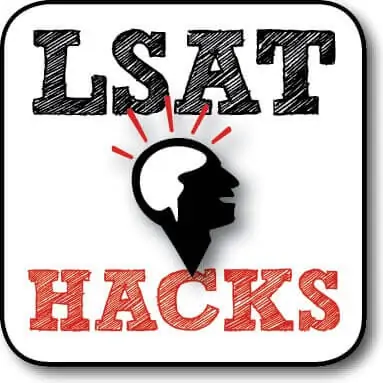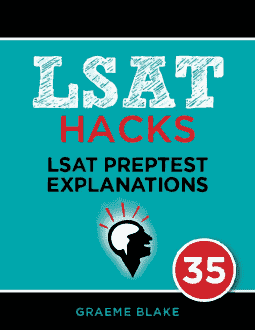QUESTION TEXT: Lecturer: Given our current state of knowledge and…
QUESTION TYPE: Principle – Strengthen
CONCLUSION: The generalization is a scientific law.
REASONING: The generalization has never been falsified. It hasn’t been conclusively verified either.
ANALYSIS: Technically we can’t prove whether any theory is true. We can only prove a theory false. But we still need to accept some theories in order to work with them.
So we use the standard the lecturer described. If a theory hasn’t been disproved and often has made successful predictions then we call it a law. But we must remember that some laws could be disproved.
The correct answer tells us when to conclude that something is a law. A and B only let us say when something isn’t a law. C and E are too broad.
___________
- This tells us a necessary condition for a scientific law. We need a sufficient condition.
- This tells us when not to say something is a scientific law. We need to conclude that something is a scientific law.
- We don’t actually know if the second law of thermodynamics is true universally.
- CORRECT. We have tested this law as far as current science allows. That lets us correctly conclude that it is a law.
- This goes too far. It says that anything that we think is a law will be a law. But the lecturer implies that some laws could be proven false.

Free Logical Reasoning lesson
Get a free sample of the Logical Reasoning Mastery Seminar. Learn tips for solving LR questions


The lecturer says that “the generalization has not been conclusively verified…under every feasible condition.” To me, that meant that there are existing, feasible ways that this generalization could be verified that haven’t happened yet. I thus thought that I couldn’t confidently say that the generalization has been tested to the extent that current science allows. Am I reading that wrong?
You raise a good point. I think here feasible refers to the conditions we could test. The part that is not possible is doing such testing “in every corner of the universe”. We can’t reach every corner of the universe. Does that help?
I’m having a bit of trouble understanding the answer choice D. In the answer, it states that “If a generalization is confirmed to the extent current science allows…” But in the passage, it clearly states that the generalization “has not been falsified”. How can we assume, then, that something “not been falsified” is equivalent to “is confirmed”.
To what extent can we make the connection that something not being proven untrue is therefore true?
We don’t have access to every possible set of conditions in the universe, that’s why the stimulus says that the generalization cannot be “conclusively verified in the sense that it has not been tested in every corner of the universe”. This is also why, more broadly, scientific theories and laws change as more experiments are run and observations are made. The “truth” of this generalization is that it has correctly described a phenomenon so far, and has yet to be falsified — the caveat is that potentially it could be falsified at some point as we learn more about the universe.